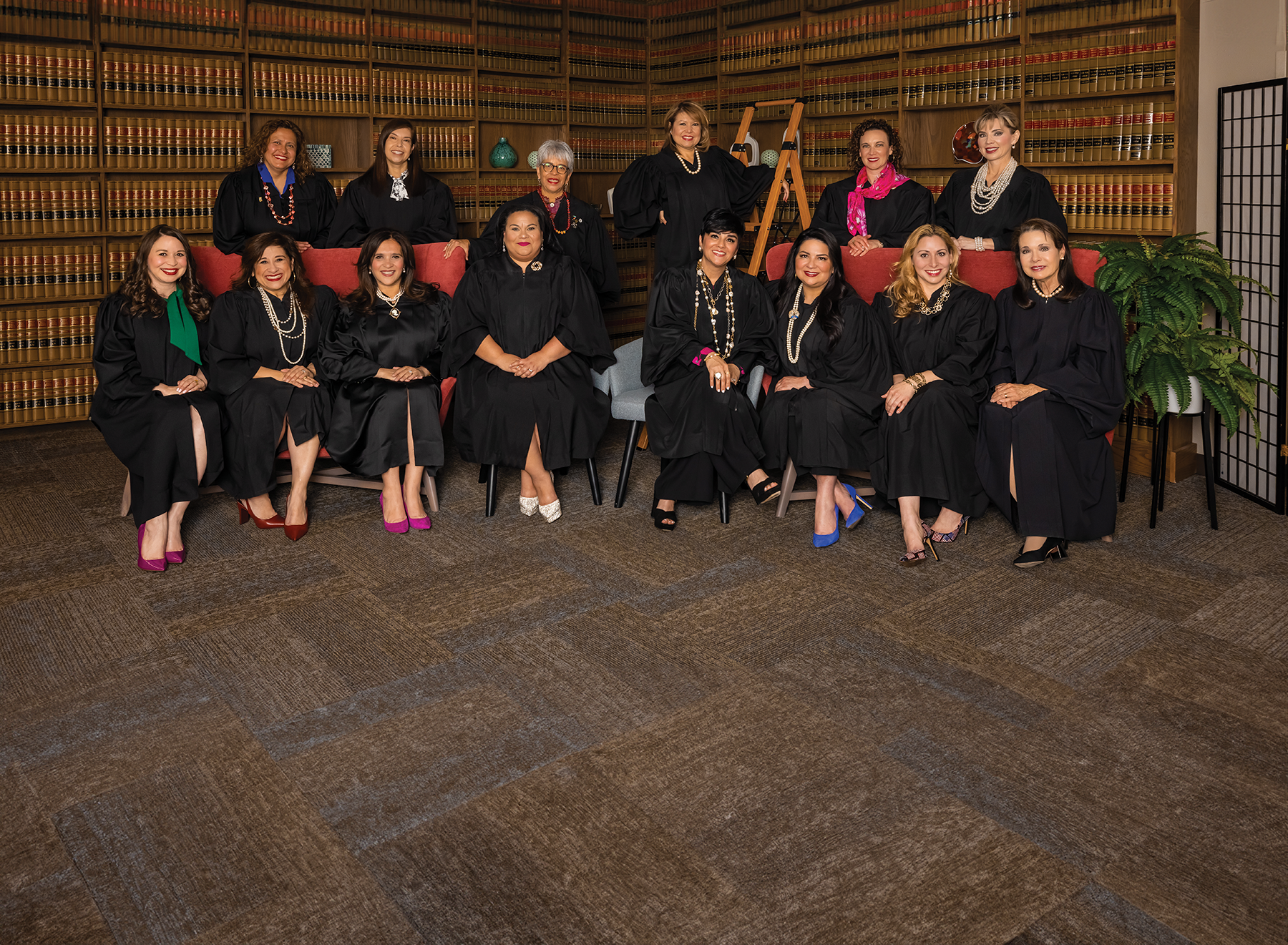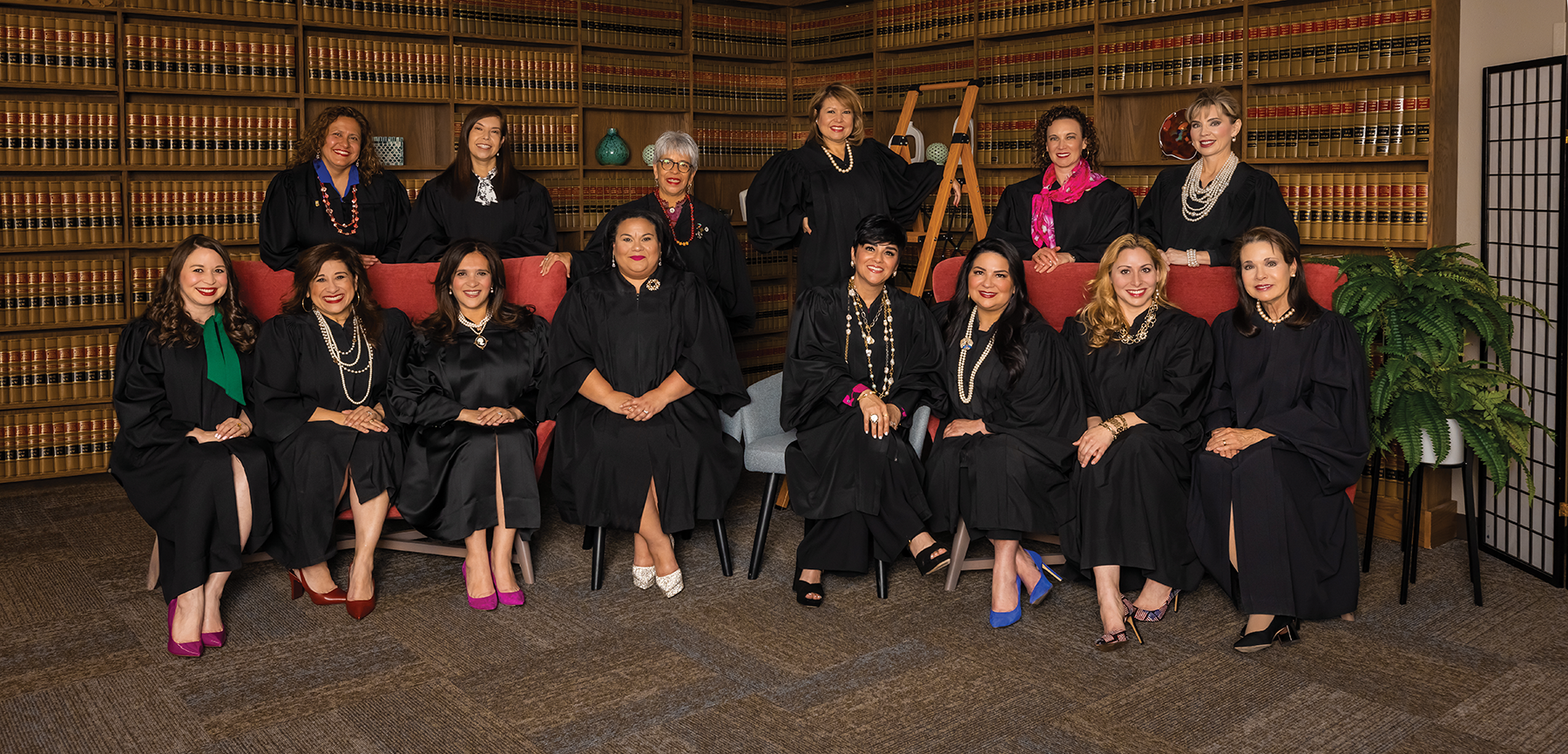
3 minute read
A Historic Moment in the Legal Landscape
A Significant Milestone
It has been only 120 years since women were admitted to practice law in Texas and 70 years since they were permitted to serve on Texas juries. A significant milestone occurred in February of 2024, when San Antonio became the first Texas metropolitan city where the Civil District Court was comprised entirely of women, marking a historic moment in the legal landscape. Only 3% of law students and licensed attorneys were women in 1970. By 2014, women comprised 50% of law school students, and the percentage of female practitioners had grown steadily. By 2021, 37% of lawyers in the United States were women, which aligned with Bexar County’s attorney population.

The fourteen Civil District Court Judges not only bring a rich diversity of practice areas and professional experiences to San Antonio’s civil bench, but they are also deeply connected to the community they serve. They are not just legal professionals but also a reflection of the community. They understand its culture and history, making them more relatable to the people they serve.
They were all raised in South Central Texas, and all but two attended Texas law schools. The majority of the judges are fluent Spanish speakers. Collectively, they have over 324 years of experience practicing law, with nearly 100 years of bench experience. Most of the judges came from private practice and focused on family law, criminal law, and complex business litigation, practicing in county, district, state appellate, and federal courts, including the 5th Circuit Court of Appeals. Several judges have public sector experience, ranging from work as a prosecutor, a legal aid staff attorney, and a director for elected officials drafting and passing Texas legislation. Each judge plays an active role in the District Civil Court through committee appointments that oversee civil court operations and liaise with various courts and county departments. Their involvement in these crucial aspects of the legal system underscores their commitment to the efficient functioning of the court.








